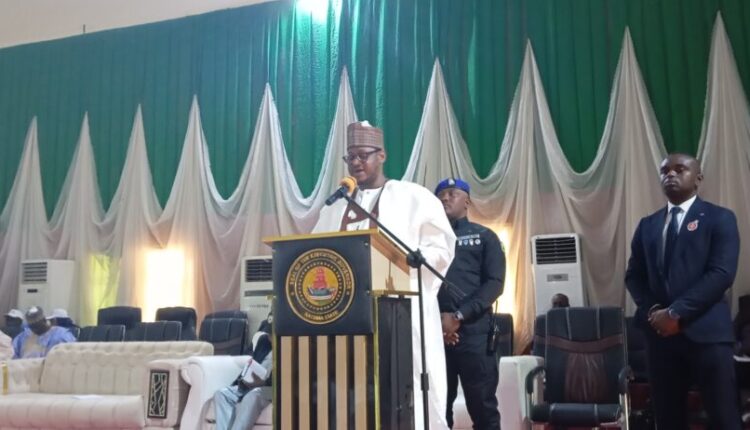Gov. Dikko Radda of Katsina State has flagged-off the 2024/2025 General Household Survey (GHS) in the state, and also inaugurated the state consultative committee on statistics.
During the event organised by the State’s Bureau of Statistics (SBS), in Katsina on Monday, the governor also launched the bureau’s website.
The exercise was supported by the United Nations Children’s Fund (UNICEF), United Nation Development Programme (UNDP) and the National Bureau of Statistics (NBS).
Radda explained that the survey would enable policymakers and by extension, development partners to have a deeper understanding of household living conditions in the state.
According to him, “It will also provide evidence-based information for policy implementation that will transform the lives of citizens, both in the state and the country in general.
“After I assumed duty, I vigorously pursued laudable projects to improve people’s well-being in the state. The idea is to open new possibilities for development without leaving anyone behind.
“Based on this, I recently launched the community development programme in all the 361 wards of the 34 Local Government Areas in the state.
“The successful implementation of pro-poor policies is hinged on reliable data. Through up-to-date data, policy-plan budgets are better coordinated for greater performance.”
The governor added that the GHS comes in handy in providing relevant data for optimal policy performance, charging the SBS to use a robust methodology that conforms with the international standard throughout the survey.
He pointed out that the outcome of the survey shall reflect the reality of current pattern of household dynamics and shall provide invaluable insight into their economic activities, well-being, and resilience.
“Indeed, GHS shall collect salient household-level information on income, consumption, health, education, nutrition, children’s development, and shocks, among other key socio-economic variables.
“In a nutshell, GHS is a goldmine and treasure trove for policymakers and researchers alike. Additionally, it is a longitudinal survey that helps in tracking respondents over time.
“This would permit capturing multidimensional indicators mirroring ongoing economic, social, environmental, financial, and infrastructural intervention of this administration,” Radda said.
The governor further acknowledged the fact that with the type of youths engaged as enumerators, a greater achievement “is ascertained.”
He also appreciated the support of UNICEF, Kano Field Office for showing genuine concern in many facets of challenges affecting the development of the state.
The state Commissioner for Budget and Economic Planning, Alhaji Bello Kagara in his remarks said the second activity at the event was the launch of the website, where the major statistics in the state would be obtained.
The commissioner said that with the launching of the website, it meant at the end of the survey exercise, it would be uploaded on that website so that everybody could access.
According to him, the establishment of the website is part of the governor’s commitment towards ensuring that all things are being done in the right way.
Also speaking, Hajiya Fatima Musa, a Social Policy Specialist with UNICEF, Kano Field Office, expressed hope that the data would be used in planning State Development Plans (SDP), Medium Term Sector Strategy (MTSS), and Medium Term Expenditure Framework (MTEF).


